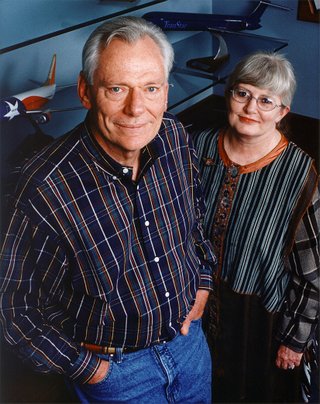
Kelleher’s philosophy was as unorthodox as it was effective. He rejected the sacred cow of “customer first” and instead declared, “If employees are treated well, they’ll treat the customers well. If the customers are treated well, they’ll come back, and the shareholders will be happy.”
This wasn’t a slogan—it was a strategy. And it worked. He understood what too many executives still miss: the happiness of a company’s employees is vital to its business success. At the heart of this culture was Colleen Barrett (1944–2024,) who began as Kelleher’s legal secretary and rose to become president and COO. She was the steward of Southwest’s soul, and she made it her mission to ensure employees felt not just respected, but loved. When Southwest went public in 1971, it chose the stock ticker LUV—a nod to its home base at Dallas Love Field and a cheeky emblem of its people-first ethos.
We almost demand that you have fun and you enjoy yourself. I spend probably seventy to eighty percent of my time trying to assure that our employees feel good about their work environment, feel that we care about them as people, and feel that they are empowered and really encouraged to make decisions from the heart. We really want people to do the right thing versus doing things right. If you enjoy what you’re doing, you will probably do it better.
Love conquers the defensiveness that closes people to influence. When people feel loved, the walls come down. When people look out for their colleagues’ interests, their colleagues are more open to accepting new ideas and behaving in prescribed ways.
A lot of people at Southwest Airlines believe that the reason Herb and Colleen have so much influence within the company has less to do with their positions than with the way that they consistently demonstrate their love for employees. Leading through love means you’ve got to care. Love is a source of influence.
But time, like altitude, changes perspective. In recent years, Southwest has begun to resemble the very industry it once mocked. The camaraderie remains, but the warmth has cooled. The parties are fewer, the policies more rigid, and the once-radical culture has been diluted by the gravity of scale and the pressures of Wall Street.
Still, the lesson endures: the happiest worker is not the one most surveilled, but the one most trusted to think. And in a world where most companies treat morale as a line item, Southwest’s early years stand as a reminder that a culture that celebrates its people will outlast one that merely exploits them.
That’s not sentimentality—it’s strategy. And it’s one worth defending.